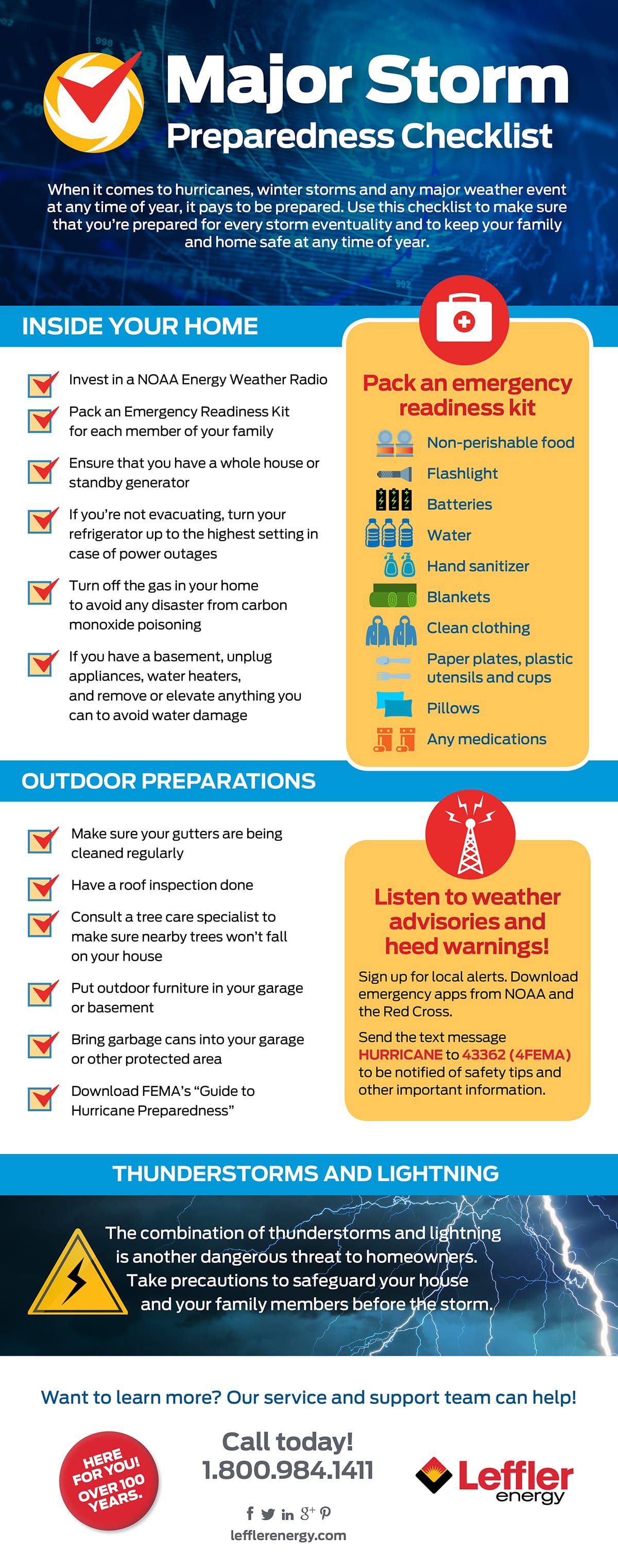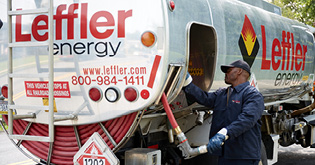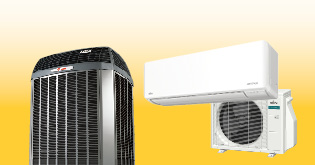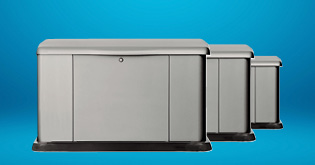
Is your home prepared for storms?
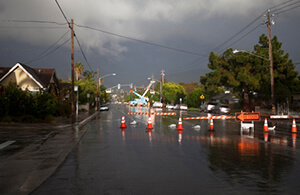
The official 'hurricane season is June 1st through November 301 and while we don't live along the coast, we're close enough to be impacted by the severe weather created by one. That's why we've put together a list of safety tips and advice that you can use as your summer storm preparedness guide.
Storm preparedness guide
- Listen to and heed ALL weather advisories and warnings.
- Sign up for local alerts. Most county emergency management offices have a text messaging system that residents can sign up for to be alerted of any severe weather situations.
- You can also download emergency apps from NOAA and the Red Cross. Send the text message HURRICANE to 43362 (4FEMA)2 to be notified of safety tips and other important information.
- Get an NOAA Emergency Weather Radio to alert you when emergency weather situations are imminent even if you're asleep or don't have power. Many of these radios can be charged with external battery packs that charge cell phones or hand cranks.
- Pack a home emergency readiness kit. The kit should include non-perishable food, a flashlight, batteries, plenty of water, hand sanitizer, blankets, clean clothing, paper plates, plastic utensils and cups, pillows, and any required medication.
- A whole house or standby generator is a necessity for any home but don't wait until a storm is forecast to get one, as supplies often run out.
- Already have a generator? Test any generator before you think it might be require
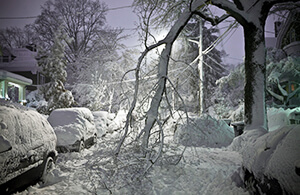
- Think about how you intend to use a generator, how long you may need to use it because of power outages, and how you can safely store it during the storm. Talk to a licensed professional to help choose which generator is best for you, your home, and your particular needs. Having a backup generator can be a huge benefit when a storm hits, but only if you know how to use it safely.
- If you're forced to evacuate, pack an evacuation kit for each family member. Put legal, financial, and insurance documents along with health records, the title to your home and cars, marriage licenses, and other important documents and papers in a storm and fireproof box in a location that's quick and easy to grab.
- Set your refrigerator to the highest setting. The Red Cross suggests freezing leftover food, deli meats, or cheeses, and milk. Freezing prevents these foods from exposure to temperatures 40 degrees Fahrenheit for more than two hours.
- Turn off ALL of the gas in your home to avoid the potential of carbon monoxide poisoning.
- If there is any chance of flooding, turn off the electricity immediately. The combination of water and electricity is very dangerous.
- Unplug appliances, and water heaters and remove anything you can from the basement, to minimize potential damage.
- Have gutters cleaned regularly. Clogged gutters can lead to expensive gutter repairs and water damage to your walls, basement, and foundation.
- Get your roof inspected to make sure you don't have loose or broken roof tiles, and that everything is sealed tightly to prevent flooding from the roof.
- Ask an arborist or tree care specialist about any large trees close to your home to ensure that they won't fall during a storm.
- Put outdoor furniture, garbage, recycling containers, or anything else that might turn into a projectile from high winds into your garage or basement.
For more information, download FEMA's Guide to Hurricane Preparedness which covers everything from smart ways to protect your home, gathering supplies, and features important information about coping with the aftermath of any major disaster.
1Hurricane Research Division, Atlantic Oceanographic & Meteorological Laboratory
2 FEMA http://www.fema.gov/media-library/assets/documents/9810
